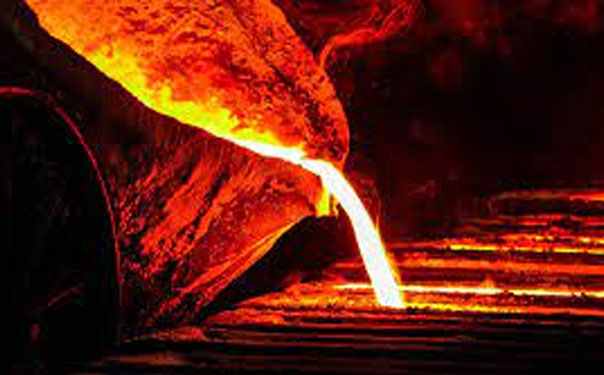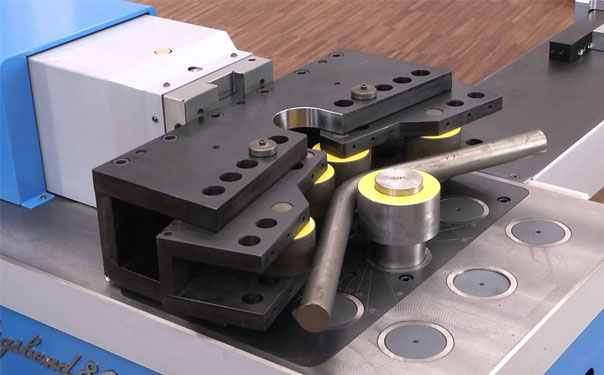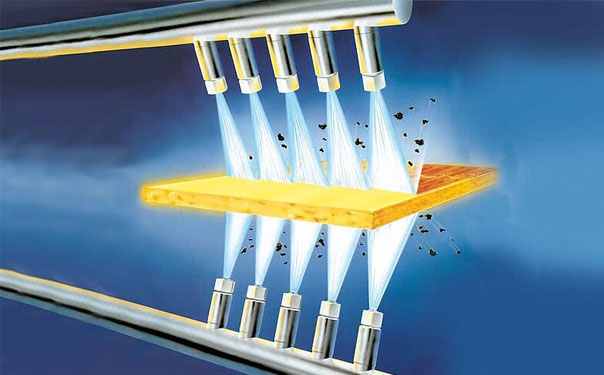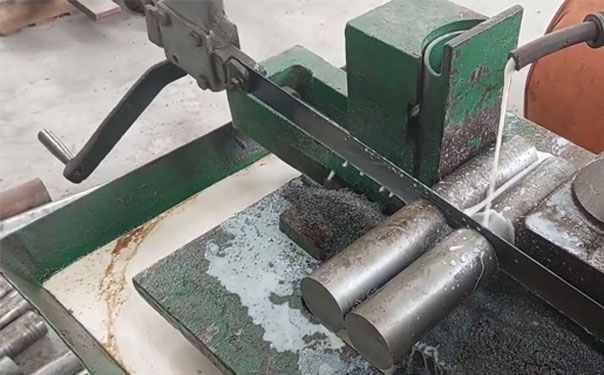Alloy Steel F11 Bars are a type of alloy steel known for their exceptional strength, durability, and versatility. These bars are made from a combination of iron and other elements, primarily chromium and molybdenum, to enhance their mechanical properties and resistance to corrosion. The "F11" designation indicates the specific grade of alloy steel, with F11 being commonly used for applications requiring high-temperature strength and resistance to oxidation.
One of the key features of Alloy Steel F11 Bars is their high tensile strength, which makes them suitable for use in demanding industrial applications. They exhibit excellent toughness and hardness, allowing them to withstand heavy loads and high-stress environments without deformation or failure. Additionally, the presence of chromium in the alloy provides enhanced resistance to corrosion, making F11 bars suitable for use in corrosive environments such as chemical processing plants and offshore drilling rigs.

Another notable feature of Alloy Steel F11 Bars is their ability to maintain their mechanical properties at elevated temperatures. This property, known as high-temperature strength, makes them ideal for use in applications involving heat exposure, such as in boilers, heat exchangers, and power generation equipment. The inclusion of molybdenum in the alloy further enhances its thermal stability, ensuring reliable performance even in extreme heat conditions.
Alloy Steel F11 Bars are available in various shapes and sizes, including round, square, hexagonal, and flat bars, to suit different application requirements. They can be easily machined, welded, and fabricated to create custom components and structures, offering flexibility in design and assembly. Additionally, these bars can be heat treated to further improve their mechanical properties, such as hardness and toughness, according to specific application needs.
In terms of applications, Alloy Steel F11 Bars find extensive use across various industries where high strength, corrosion resistance, and thermal stability are essential requirements. Some common applications include the construction of pressure vessels, piping systems, valves, and fittings in chemical processing plants and refineries. They are also utilized in the manufacturing of steam turbines, boilers, and other components in the power generation sector. Additionally, Alloy Steel F11 Bars are employed in aerospace, automotive, and manufacturing industries for producing structural components and machinery parts subjected to heavy loads and harsh operating conditions.

Melting and Casting
Steel and alloying metals are loaded into an electric arc furnace. Once in the furnace, the metal is heated to a specific temperature above its melting point, usually in excess of 2800°F.

Forming
Most cast steel is formed by hot rolling—the slab, bloom, or billet is heated and passed through large rollers, stretching out the steel into a longer, thinner form.

Heat treatment
Heat treatment strengthens rolled Inconel by recrystallizing the deformed microstructure. Most Inconel is heat treated by annealing.

Descaling
A rolled piece of Inconel acquires a layer of oxidized “mill scale,” which needs to be washed away to restore a shiny surface finish.

Cutting or Machining
Inconel is cut to a specified shape and size. The Inconel can be sheared with circular knives, sawed with high-speed blades, or blanked with punches.
| Standards : | ASTM B425 / ASME SB425 |
| Dimensions : | EN, DIN, JIS, ASTM, BS, ASME, AISI |
| Wire : | Thickness starting from 0.05mm |
| Round bar size : | Diameter: 3-~800mm |
| Hex Bar size : | 2-100mm A/F |
| Flat bar size : | Thickness: 2 -100mm / Width: 10 to 500mm |
| Square bar size : | 4 to 100mm |
| Rectangular Bars Size : | 33 x 30mm to 295 x 1066mm |
| Hollow Bar : | 32mm OD x 16mm ID to 250mm OD x 200mm ID |
| Tolerance : | H8, H9, H10, H11, H12, H13K9, K10, K11, K12 or as per clients’ requirements |
| Finish : | Black, Bright Polished, Rough Turned, NO.4 Finish, Matt Finish, BA Finish |



| STANDARD | UNS | WERKSTOFF NR. | Trade Name |
| Alloy Steel F11 | K11597 | 1.7338 | 1-1/4Cr-1/2Mo |
| Grade | C | Mn | Si | P | S | Cr | Mo |
| Alloy Steel F11 | 0.15 max | 0.3-0.6 | 0.5 - 1 | 0.03 | 0.03 | 1 - 1.5 | 0.044 - 0.65 |
| Grade | Tensile Strength (MPa) min | Yield Strength 0.2% Proof (MPa) min | Elongation (% in 50mm) min |
| Alloy Steel F11 | 205 | 415 | 20 |

Electrical Industry

Automotive Industry

Construction Industry

Defence Industry

Pharmaceutical Industry

Petroleum Industry

Petrochemical Industry

Milk & Dairy Industry
Austria, Azerbaijan, Belarus, Belgium, Bulgaria, Croatia, Cyprus, Czechia/Czech Republic, Denmark, Estonia, Finland, France, Germany, Greece, Hungary, Ireland, Italy, Latvia, Liechtenstein, Lithuania, Luxembourg, Malta, Moldova, Monaco, Netherlands, Norway, Poland, Portugal, Romania, Russia, Serbia, Slovakia, Spain, Sweden, Switzerland, Turkey, Ukraine, United Kingdom.
Afghanistan, Armenia, Azerbaijan, Bahrain, Bangladesh, Bhutan, British, China, Egypt, Hong Kong, India, Indonesia, Iran, Iraq, Israel, Japan, Jordan, Kuwait, Kyrgyzstan, Lebanon, Macau, Malaysia, Maldives, Mongolia, Myanmar, Nepal, North Korea, Oman, Philippines, Qatar, Russia, Saudi Arabia, Singapore, South Korea, Sri Lanka, Taiwan, Thailand, Turkey, United Arab Emirates, Vietnam.
Algeria, Angola, Botswana, Burkina Faso, Burundi, Cameroon, Central African Republic, Egypt, Eswatini, Ethiopia, Gambia, Kenya, Liberia, Libya, Madagascar, Mauritania, Mauritius, Morocco, Mozambique, Namibia, Niger, Nigeria, Rwanda, Senegal, Seychelles, South Africa, Tanzania, Tunisia, Uganda, Zambia, Zimbabwe.
Antigua and Barbuda, Bahamas, Barbados, Belize, Canada, Costa Rica, Cuba, Dominica, Dominican Republic, El Salvador, Grenada, Guatemala, Haiti, Honduras, Jamaica, Mexico, Nicaragua, Panama, Saint Lucia, Saint Vincent and the Grenadines, Trinidad and Tobago, United States of America, Argentina, Bolivia, Brazil, Chile, Colombia, Ecuador, Guyana, Paraguay, Peru, Suriname, Uruguay, Venezuela.